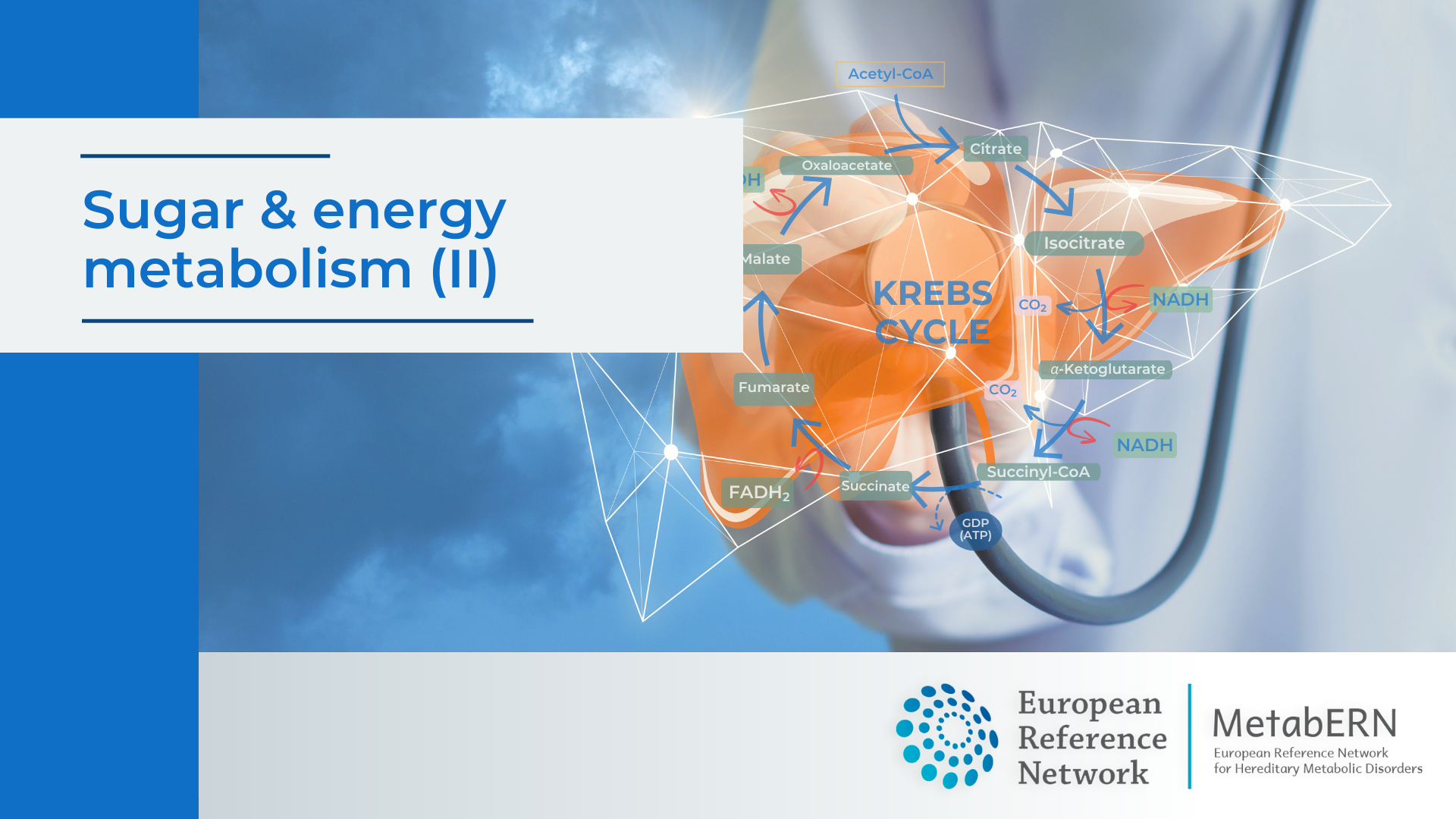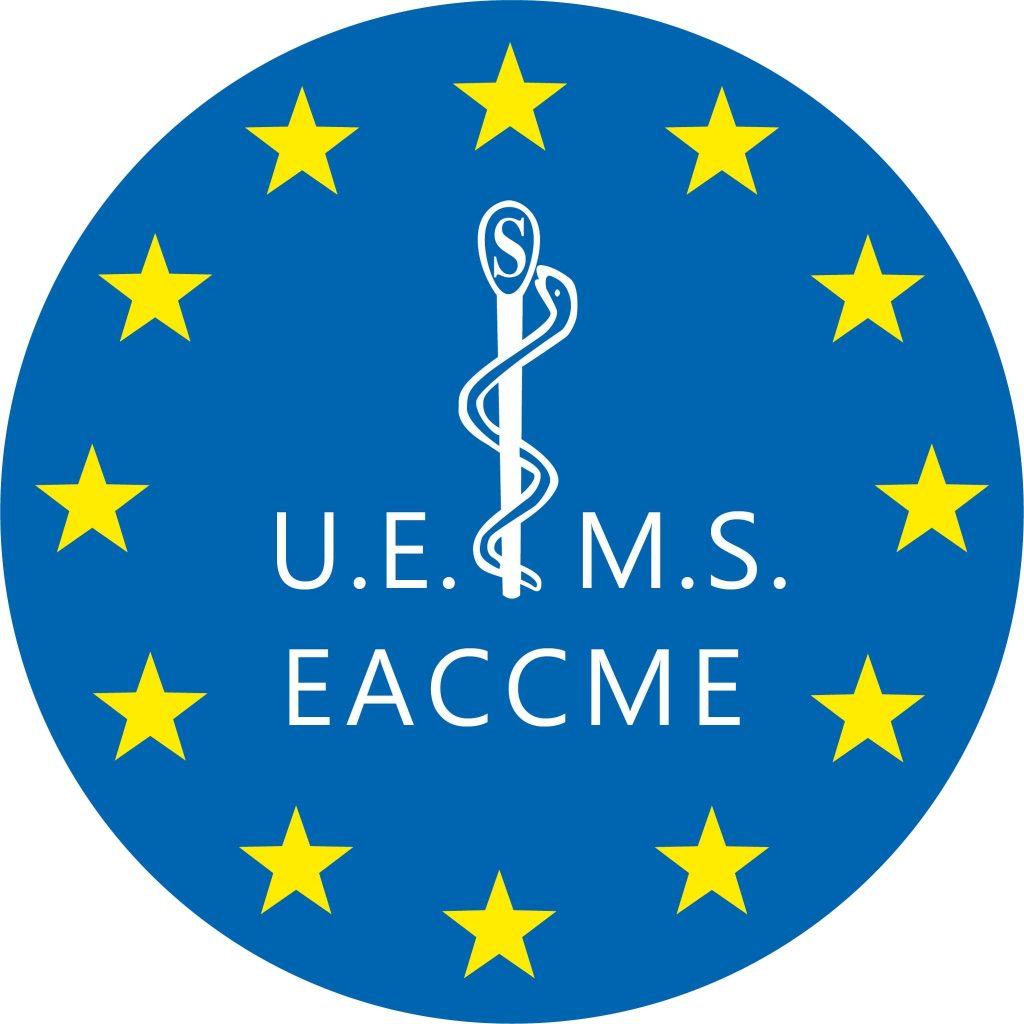
Sugar and energy metabolism is the object of three modules (Modules 3, 4 and 5). In Module 4, Krebs cycle, the main source of energy in cells with a very important role in the aerobic respiration is discussed. It is at the crossroad of intermediary metabolism and is indispensable for energy production and biosynthesis in the cells. Fatty acid oxidation with its important role in energy metabolism is the second topic of this module. The end products ketone bodies are produced by the liver and can be used as fuel in other organs with a sparing effect on the blood glucose level. These metabolic processes, together with the possible diseases associated to their deficits are discussed.
Authors: François Eyskens,Laurence Roosens
The Diagnostic, Clinical and Therapeutic Education Programme on Inherited Metabolic Disorders. Module 04: Sugars & energy metabolism (II) made available on https://metab.ern-net.eu/education-programme/ and organized by MetabERN – European Reference Network for Hereditary Metabolic Disorders is accredited by the European Accreditation Council for Continuing Medical Education (EACCME®) to provide the following CME activity for medical specialists. Only those e-learning materials that are displayed on the UEMS-EACCME® website have formally been accredited.
Only those e-learning materials that are displayed on the UEMS-EACCME® website have formally been accredited.
Through an agreement between the European Union of Medical Specialists and the American Medical Association, physicians may convert EACCME® credits to an equivalent number of AMA PRA Category 1 Credits™. Information on the process to convert EACCME® credits to AMA credits can be found at https://edhub.ama-assn.org/pages/applications.

This Module has been awarded with 1,5 ECMEC® credits
